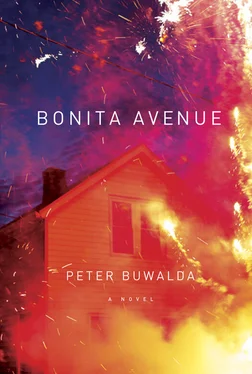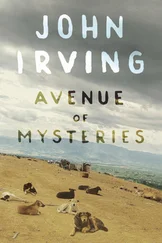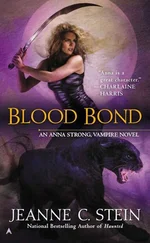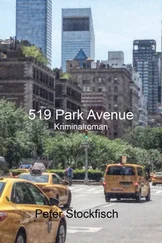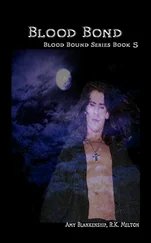“Are you there?” the voice said.
He hawked soot out of his throat. “Yes,” he said. But where was she? Was she really in America?
“Hey. Phew. Long time no see. How are you? I have to keep it short.”
He nodded. He had not spoken to another human being for so long that he was unable to respond, she had to understand that, he was so used to listening, to the blabbing in the supermarket where he actually never went anymore, to the squeaking and scuffling of the animals under his sofa and chairs, to the recriminations emanating from his bookshelves, maybe it was the quiet in the house, his own silence that provoked the hissing and groaning, he only had to glance at any random spine on the bookshelf and it would explode in a tirade — toxic manipulation it was — and he allowed himself to be slandered, he bore it submissively; at times it went no further than minor accusations (“buy some normal food, you shit, something you have to peel and cook yourself!”) or just ordinary cursing (“deadbeat! you stink of puke!”), but often they were vicious personal attacks (“traitor, Nazi, you should die, die! ”) — rhetorical choruses he fled from, huddled in bed or cowering in the shower, but the cold always drove him back downstairs, the same cold that gave him the wicked idea to kill his tormentors, a funeral pyre—
“Aaron? The balance on my calling card is low.”
Balance? Bank balance . They drove him up the wall, those balances. What was she trying to say, he tried to grasp the gist of her words. The balances fluctuated like crazy, every envelope he used to fill with reprieved book pages once contained bank statements, the place was overflowing with bank statements, envelopes poured out of upstairs drawers and cupboards, or he shook them out of lead-gray binders up in the attic: opaque, oblong windowed envelopes from banks in the Netherlands but mostly from Luxembourg; the one announced an overdraft of 284.30 guilders, the next a balance of $2,438,749.63, after that he had to make do with five guilders and fourteen cents, it baffled him, he could lie there for hours fretting about it, where’d that damn money go, where’d it come from? “I’m doing my best,” he said. “But it’s still difficult.”
He heard nothing, only white noise. “I understand,” a voice said. “It was hard on me too, believe me. Anyway, I have good news. I’ve found a buyer. For the boat.”
By your boat … in his mind a smooth, black ocean stretched out before him, a sunken ship, trillions of ice-cold water molecules beneath the faint moonlight, hardly any waves, he held on tight to a piece of slimy driftwood, around him he could see the tops of heads, bodies floating against the sea’s ceiling.
“I wondered if you might want to drive to Sainte-Maxime with me. Take the Alfa down to the Barbara Ann . I’ve got lots to tell you.”
His confusion capsized into fear. A moment ago his heart had felt too big for his body, but now it caved in altogether, his heart became as small as a cherry, creating a vacuum in his chest cavity, an implosion which, obeying age-old laws of physics, drew in the entire room: the walls were sucked inward, the smashed back window was a mouth that inhaled gallons of rust-brown vapors. They sat in the Alfa, he stepped on the accelerator, but they drove away from the yacht. They raced northward, to the Netherlands, to here. To glass that had to be broken.
“OK,” he stammered.
“That’s great,” she said. “I’ve got a ticket for December 21st. I can be in Enschede in the afternoon.”
He coughed, cleared his throat, and spat out a thick wad of dusty phlegm.
“OK.”
Before or after, he wasn’t sure which way they were traveling, time still flew, or had she crashed? — anyway at a particularly cold moment he picked up the chestnut-brown object by its narrow protruding edges and lugged it, groaning from the effort, over to a wall. Halfway there the side of the chestnut-brown object flew open like a small door and its guts came crashing out. They broke like glass, he screamed from the shock, penetrating odors rose from them. Like a coiled spring, he bolted into the next room.
He awoke with a start, and couldn’t see a thing. In the darkness he groped for the rectangular opening and stared through it long enough to make out the chestnut-brown object. It did not move. He stumbled cautiously around it, felt through his mitten-covered gloves for the smooth edges. It had become so lightweight he fell over backward. As though gravity did not pull at it. He put the corpse against a wall.
When he opened his eyes again, everything was visible. Me, here? With a Magic Marker between his teeth he climbed up onto the liquor cabinet (had he put it there?), suddenly high up off the ground, the empty bookshelves intimately close, the edges pressing not unpleasantly against his chest and thighs. Trembling, he took the marker from his mouth and spat the cap into the room. In large, open block letters he drew an “A” on the wallpaper and filled it in red. Then he drew “ROOM,” it was slow and tough going with his double-gloved hand. Before he finished filling in the second “O” he had to get down because his arm quivered and his shoulder ached. After that it was dark for a long time.
Outside, a layer of white ash covered the remains of houses and flora. Something terrible must have happened, a nuclear disaster of which he was the sole survivor. The ash, white as snow, had come fluttering down from the sky for hours on end. He had probably survived the atomic blast because his house was at a particular coordinate, a thermodynamic singularity impervious to the heat. The entire cosmos was burned to a crisp, everything except the houses on his street. Something, or someone, still appreciated his worth.
“WITH A”—he was still coloring in the second lonely “A,” a letter that evoked his intense sympathy, more than the first one, he had to fight back his tears, when he smelled that smell. He immediately saw why: the uppermost shelf was covered with an alarmingly thick layer of gunpowder. All of his muscles contracted in a simultaneous spasm, with a yell he shoved himself away from the wall, his body flew through the air, he floated, perhaps he could fly outside between the planks covering the windows, but before he could change course his left arm slammed against a hard object. He landed with a muted thud on the ground, his head was flung back. He calmly rotated with the charred earth, taking note of the throbbing pain in his buttocks and lower back.
• • •
Later, someone spoke. When he opened his eyes, he looked up at a figure in the semidarkness. He pressed the palms of his hands into a boggy substance. The creature stood in the middle of the roofed space. It took a step, extended a gloved tentacle that held a weird, glimmering ball. “Easy does it,” it said. With kicking movements he pushed himself back, shouting, sliding on his back across the floor until his head banged into a wall.
It was puffed up, it wore a kind of space suit, the garments of an alien bomb-disposal squad, he did not recognize the face, it kept morphing. In the shadows it looked like a gas mask made of human skin, a face with big round eyes and a rubber snout. The fiery sphere was a neutron bomb, it emitted golden flames, the creature was offering him Armageddon. It took another step in his direction, he pushed off again, hard, scooted up farther against the wall.
“No,” he whispered.
“Aaron,” said a voice of soft velvet. “Calm down. It’s me.”
When he heard my name his eyes shot back and forth like hockey pucks, he wrenched himself farther away, babbling gruffly, kicking at the debris like the back legs of a scurrying dog. It looked like he wanted to press himself through the wall.
Читать дальше
